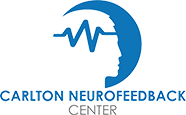Tune in to the Carlton NeuroFeedback Center blog to learn more about brain health, the latest research, the mechanics of neurofeedback, and more ideas and tips to help you advocate for your own health and wellness. Each individual’s health journey is unique, which is why we are committed to helping our patients as we would our own families. As always, if we can partner with you on your healthcare journey, we hope you will contact us and make an appointment.







